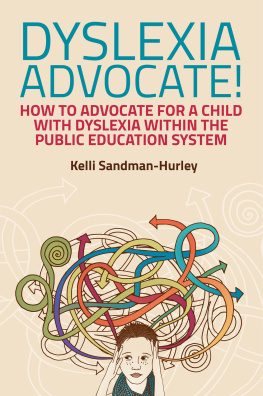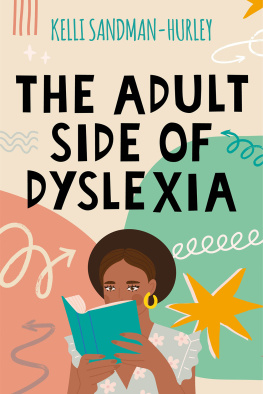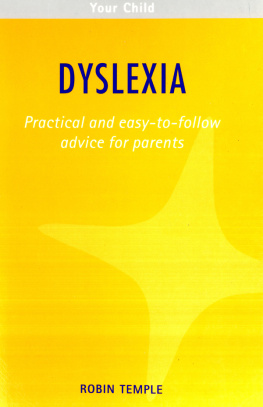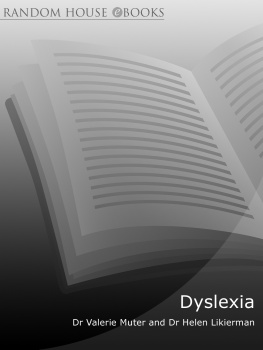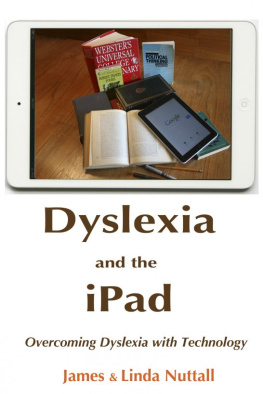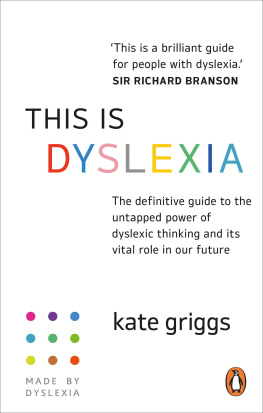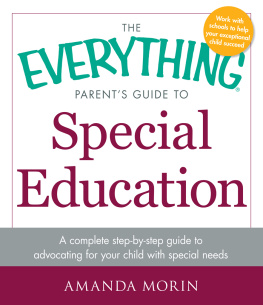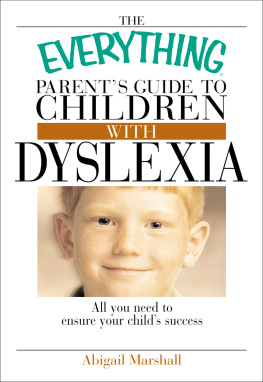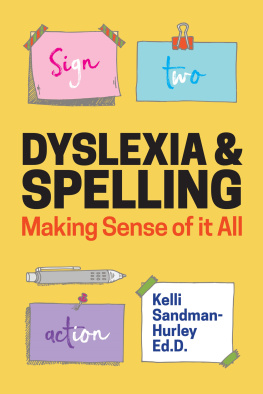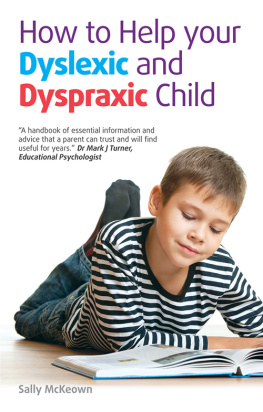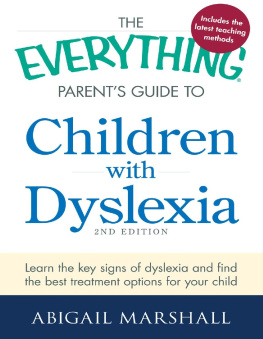
Kelli Sandman-Hurley has been and is my go to person when I have a question on dyslexia. Her knowledge of dyslexia is truly extensive and her championing for children is well-known in California and other states as well. Kelli takes every opportunity to work on behalf of children with dyslexia, from working directly with parents and children to schools and speaking at legislative hearings. I continue to seek her advice and often refer parents from across the country to reach out to Kelli for assistance when they are in need of expert advice on issues of dyslexia.
Vaughn K. Lauer PhD, Educational Learning and Training, LLC, author of When the School Says NoHow to Get the Yes!
Dr. Sandman-Hurley is spot on when she says advocating for a student with dyslexia requires you to raise awareness about dyslexia. This book is a great resource to help parents and professionals do both!
Deborah Lynam, Parent, Decoding Dyslexia NJ
of related interest
A Guide to Special Education Advocacy
What Parents, Clinicians and Advocates Need to Know
Matthew Cohen
ISBN 978 1 84310 893 1
eISBN 978 1 84642 921 7
When the School Says NoHow to Get the Yes!
Securing Special Education Services for Your Child
Vaughn K. Lauer
ISBN 978 1 84905 917 6
eISBN 978 0 85700 664 6
Can I tell you about Dyslexia?
A guide for friends, family and professionals
Alan M. Hultquist
Illustrated by Bill Tulp
ISBN 978 1 84905 952 7
eISBN 978 0 85700 810 7
DYSLEXIA
ADVOCATE!
HOW TO ADVOCATE FOR A CHILD
WITH DYSLEXIA WITHIN THE
PUBLIC EDUCATION SYSTEM
Kelli Sandman-Hurley

Jessica Kingsley Publishers
London and Philadelphia
First published in 2016
by Jessica Kingsley Publishers
73 Collier Street
London N1 9BE, UK
and
400 Market Street, Suite 400
Philadelphia, PA 19106, USA
www.jkp.com
Copyright Kelli Sandman-Hurley 2016
No protection is claimed in original US government works.
Front cover image source: Shutterstock.
All rights reserved. No part of this publication may be reproduced in any material form (including photocopying or storing it in any medium by electronic means and whether or not transiently or incidentally to some other use of this publication) without the written permission of the copyright owner except in accordance with the provisions of the Copyright, Designs and Patents Act 1988 or under the terms of a licence issued by the Copyright Licensing Agency Ltd, Saffron House, 610 Kirby Street, London EC1N 8TS. Applications for the copyright owners written permission to reproduce any part of this publication should be addressed to the publisher.
Warning: The doing of an unauthorized act in relation to a copyright work may result in both a civil claim for damages and criminal prosecution.
Library of Congress Cataloging in Publication Data
Names: Sandman-Hurley, Kelli.
Title: Dyslexia advocate! : how to advocate for a child with dyslexia within the public education system / Kelli Sandman-Hurley.
Description: Philadelphia, PA : Jessica Kingsley Publishers, 2016. | Includes bibliographical references and index.
Identifiers: LCCN 2015040989 | ISBN 9781849057370
Subjects: LCSH: Dyslexia. | Individualized education program--United States. | Children with disabilities--Education--Law and legislation--United States.
Classification: LCC LB1050.5 .S225 2016 | DDC 371.91/44--dc23 LC record available at http://lccn.loc.gov/2015040989
British Library Cataloguing in Publication Data
A CIP catalogue record for this book is available from the British Library
ISBN 978 1 84905 737 0
eISBN 978 1 78450 274 4
To Rick and Casey. You so generously let me take time from our family so that I could follow my passion and help other families. Thank you and I love you.
To the adults I worked with at READ/San Diego of the San Diego Public Library. You are the reason I do what I do. I am sorry I met you after you became adults and I was not able to help you before your struggles with literacy brought you to READ/San Diego. But your stories moved me to do something more. Thank you for sharing your stories with me. Never give up.
Finally, to the parents of the students who have sat in my office and cried, screamed, complained and felt so alone, you are my inspiration. You refuse to give up on your bright children and you called for change. Change is coming and it is all because you refused to let your children be the victims of what could be the civil rights issue of our time.
To the great people who took the time to read this book and offer feedback, specifically Tracy, Brittany, Vaughn, and Jenifer, I appreciate you!
To my dad, who has forever been my editor with the most honest feedback. To my mom, for always being proud of me.
Dyslexia is real.
CONTENTS
PREFACE
ad + voce + ate AdvocateAdd your voice
/T/ /t/ /taw/ /tawn/ /tawm/ Tom sag the sssooonnng, song, song to kid.
Nathan is trying to read the following sentence: Tom sang the song to the kids. Listening to Nathan read is painful. He struggles through one- and two-syllable words, he skips words like a, and, the, of, if, and often ignores punctuation. He reads with no expression and often cant remember what he just read, but sometimes surprisingly understands everything he read. He is inconsistent with his reading. His spelling is almost incomprehensible. He often spells either or . He will spell longer words like as , as or as . However, when you read something to him or he listens to something in an audio format, he can tell you every detail and usually add his own commentary. He is very bright. He has a great verbal vocabulary and is creativeand he is about to go into the fourth grade reading at a first grade level. So, why cant he read? In one word, dyslexia. But Nathan is just one example of how dyslexia might affect a student. Some students with dyslexia might be decent readers and poor spellers. Others might only need more time to read to understand what they read. And still others might not be able to read or spell even the simplest words. They are all different children, with different symptoms, but they all have dyslexia.
Dyslexia is real. In every school, in every city in this country and beyond, are students (approximately one in five) who go to school every day and wonder why their friends seem to learn to read and spell without a problem. They ask themselves why they cant, and in many cases, they begin to question their own intelligence. They are labeled lazy, unmotivated, slow, or late bloomers. They struggle when asked to read in front of their peers and require at least twice as much time for homework than their fellow students. They may study for hours in preparation for spelling tests, only to misspell the same words two weeks later. They repeatedly get their papers returned with red marks, even after hours of studying, yet they understand information that is presented to them in auditory format. They have great story recall and can retell and add critical commentary to anything that is read to them. They try and they try, but they need someone to teach them differently. That is all they needsomeone to present the information in a different way than the traditional open your brain and let the teachers pour the information in, which simply will not work for students with dyslexia. They need an intervention that responds to their individual needs.
Next page
